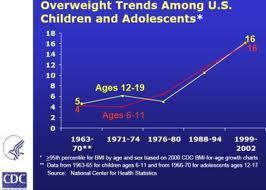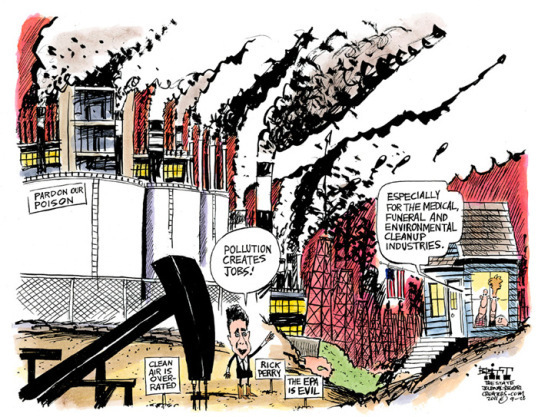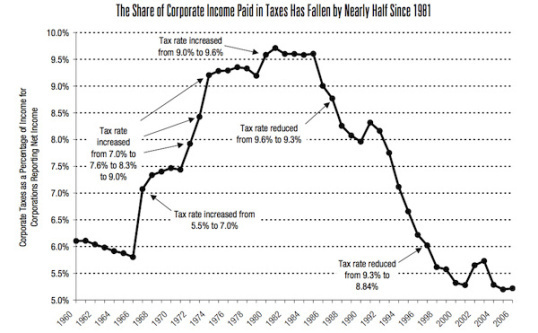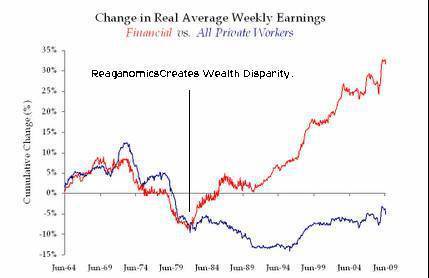Alon Shalev's Blog, page 46
March 2, 2012
Alienating the Homeless
It isn't always easy supporting the homeless. Yesterday, I sat with a group of students who care, who are giving up their Sundays and Spring Break to help people in need. Nonetheless, as we took a break, the conversation turned to interactions with homeless people and others who ask for money.
One young woman had been verbally abused after giving a homeless man some change from her pocket. He told her that she should have given more. Another told how a man had asked her for money at the BART station. She offered to buy him a ticket for the train and his response was something like 'that's really gonna buy my next hit'. A third woman told how she was approached by a woman who told her she was hungry. Having just left a restaurant, she offered the woman her box of left overs, enough she told us, to feed herself for lunch the next day, and the woman tossed the food on the ground.
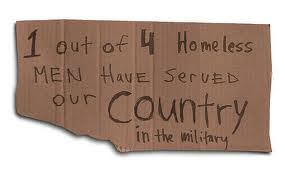 How do we deal with these situations? We think we are helping and maybe we are. Perhaps we wonder if we are subsidizing a bad habit, or reinforcing their staying on the street and out of the system.
How do we deal with these situations? We think we are helping and maybe we are. Perhaps we wonder if we are subsidizing a bad habit, or reinforcing their staying on the street and out of the system.
One way is to support organizations that help the homeless in an organized way. Project Homeless Connect is a great example. Another way is to advocate for social services and enough housing to cater for those who slip through the net.
A while ago, I gave a man enough money for a bus after he told me a long story about being a recovering alcoholic. His sister lived near where we were standing, he was supposed to stay with them for the weekend, and her husband was taunting him by bringing out bottles of alcohol and drinking in front of him. He had to get home. He had run out of her house and left his bag and wallet. He would pay me back if I gave him my address.
I gave him the money and told him to help someone else rather than return the cash to me. I did this, if I am being honest, because I didn't want to give my address and yet wanted him to feel that I wasn't giving him charity.
When I entered my house, I told my wife, though the main theme of my story, was had I just been conned. I agonized about it until she told me to decide that I had helped someone and move on. Apparently, since I am telling you this story now, I haven't.
Finally, a nice story. I often give money to homeless people who are selling the newspaper Street Spirit. I figure that they are trying to earn a living and I want to support their dignity. I gave my sons $1 and told them to buy from a man standing on Shattuck in Berkeley. The man told them that he was a poet and had a poem in the paper. My (then) 7-year-old was intrigued and proudly told the man that I am an author and we shook hands.
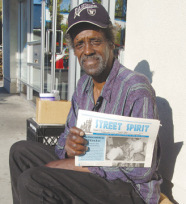
Larry Wyatt selling Street Spirit newspaper
Having seen me sign books for my readers, my son then asked the man to autograph the poem and both their eyes lit up when they did. I wondered if he really had written the poem. I want to believe that he did, that there a moment of magic passed between this old man and my son.
It helps me to continue to advocate or the rights of the homeless and the poor. Perhaps, the magic helped me as well.
——————————————————————————————————
Alon Shalev is the author of The Accidental Activist and A Gardener's Tale. He is the Executive Director of the San Francisco Hillel Foundation, a non-profit that provides spiritual and social justice opportunities to Jewish students in the Bay Area. More on Alon Shalev at http://www.alonshalev.com/ and on Twitter (@alonshalevsf).








March 1, 2012
Subsidies: Sickness and Profit
Have you ever wondered why the government subsidizes food that is bad for our health?

picture from fadingdesign.com
Government funds (our tax dollars) go to farmers that grow corn, wheat and soybeans resulting in artificially low prices for these foods. You may be asking, "what's wrong with paying less for food?"
There are fundamentally two problems with our farm subsidy programs: 1) it reduces the variety of affordable foods and 2) the funds support crops that are turned into high-fructose corn syrup and hydrogenated fats.
Between 1975 and 1984 most soda manufacturers switched from sugar to high-fructose corn syrup because of price. You may find the correlation between the rapid rise of obesity and the introduction of soft-drinks with HFCS interesting (see figure below). In addition, there is a disturbing correlation between diabetes and the use of HFCS (below). Close to 70% of the packaged foods found on grocery store shelves are manufactured with HFCS or hydrogenated fats. Even the price of beef is artificially low because they are fed an unhealthy diet of subsidized grains instead of their natural meal of grass. The cattle are given doses of antibiotics to keep them from getting too sick for meat processing.
Foods that are healthier for us, such as vegetables, are not subsidized. Have you seen the prices for fresh veggies lately? They are outrageous! The good and healthy stuff is not affordable relative to unhealthy subsidized food. These government funded programs are pre-selecting our foods by artificially lowering prices for a small variety of farmed crops.
If we want a healthy society, we must re-create a free market by doing away with farm subsidies or by allowing equal funding for all crops. This will be very difficult because the large corporate-run farms receive over 70% of the subsidies. Their lobbyist and big banking partners will do all they can to eliminate a free market. In addition, a healthy society is not good for the pharmaceutical, health insurance and medical industries which also have strong lobby groups.
It's an interesting dilemma; today's corporate landscape of profit with sickness vs a change to health with a free market.
——————————————–
Roger Ingalls is well traveled and has seen the good and bad of many foreign governments. He hopes his blogging will encourage readers to think more deeply about the American political system and its impact on US citizens and the international community.








February 29, 2012
A Prayer For Social Action
This is a poem/prayer that I want to share by Jack Riemer. It is as much a call for social action as a prayer. Whether we are believers or not, we each need to find what it takes for us to stand up and do something to make a better world.
A Prayer for Social Action
We cannot merely pray to God to end war;
For the world was made in such a way
That we must find our own path of peace
Within ourselves and with our neighbor.
We cannot merely pray to God to root out prejudice;
For we already have eyes
With which to see the good in all people
If we would only use them rightly.
We cannot merely pray to God to end starvation;
For we already have the resources
With which to feed the entire world
If we would only use them wisely.
We cannot merely pray to God to end despair;
For we already have the power
To clear away slums and to give hope
If we would only use our power justly.
We cannot merely pray to God to end disease:
For we already have great minds
With which to search out cures and healings
If we would only use them constructively.
Therefore we pray instead
For strength, determination, and will power,
To do instead of merely to pray
To become instead of merely to wish;
That our world may be safe,
And that our lives may be blessed.

Habitat For Humanity - people spending their Sundays helping give others a roof over their heads.
——————————————————————————————————
Alon Shalev is the author of The Accidental Activist and A Gardener's Tale. He is the Executive Director of the San Francisco Hillel Foundation, a non-profit that provides spiritual and social justice opportunities to Jewish students in the Bay Area. More on Alon Shalev at http://www.alonshalev.com/ and on Twitter (@alonshalevsf).








February 28, 2012
Is Republican Freedom Our Freedom?
A recent comment to one of my posts reminded me of one of the key differences between progressives and conservatives (or at least Republican conservatives) – freedom. Why is this a big difference? Does one side favor freedom while the other opposes it? Well, that's what you might think, listening to Republicans talk.
With their words, both spoken and printed, Republicans often make the claim that their party is for "more freedom" while their opponents want "less freedom."
But what types of freedom are favored by whom? Are all freedoms equal?
Republicans appear to be overwhelmingly in favor of one freedom, the freedom to make money without any encumbrance. So what if my factory pollutes the air? We have LOTS of air! So what if my restaurant chain serves slightly tainted meat? If people don't like it, they won't eat it!
The Republican Party is on a mission. It's a mission with a cool, secret code name and everything: streamlining. They want to get those pesky regulations out of the way of corporate profits. They want "the market" to decide everything.
Meanwhile, the progressive wing of the Democratic Party is trying to make it so that women have control over their own bodies. Even if that means having sex… uh oh… here it comes… hide the children… just for fun and not for the express purpose of bringing a child into the world.
Progressives want weird people like gays and blacks and organic food eaters to be treated like the human beings that they are so closely related to. They want people to be free to marry whoever they choose. They want people to be able to walk down the street without fear of being abused for having the wrong paint job. They want us to be able to live free of concerns of getting asthma from someone else's profit-making coal burning. They want free speech to be a right of human beings, not corporations.

Republicans are strategically astute, though. They always say that things like streamlining are for the benefit of small businesses. And a small machine shop would become more profitable if it could just wash solvents down the drain. But Republican policies free up corporations so that they can eat small businesses for lunch. Look at what Wal-Mart has done to so-called "main street."
It basically comes down to a simple choice: corporate freedom or people freedom. Seems easy to me.
-Tom Rossi
___________________________________________________________________________
Tom Rossi is a commentator on politics and social issues. He is a Ph.D. student in International Sustainable Development, concentrating in natural resource and economic policy. Tom greatly enjoys a hearty debate, especially over a hearty pint of Guinness.
___________________________________________________________________________








February 27, 2012
Call to Action – Basic Rights for Home Care Workers
The home care industry is a multi-billion dollar business and, not surprisingly, is mobilizing opposition using scare tactics, claiming that extending these protections to home care workers will kill jobs and leave elderly and disabled Americans without care. The facts, however say otherwise.
This proposed rule change is vital to helping make home care a more viable career. . We are asked to restrict comments to no more than 300 words and keep it personal.
Fact Sheet- debunking the opposition
Talking Points- why this rule change is so important
Sample Comments- use these as inspiration for your own comments
On-The-Go Flier- print out copies for people to write comments by hand
The Department of Labor, in the face of organized and well-funded opposition, needs to hear that there is widespread support in favor of this rule change. We don't have money to counter the negative feedback from the rule's opponents, so we need to show huge numbers.
——————————————————————————————————
Alon Shalev is the author of The Accidental Activist and A Gardener's Tale. He is the Executive Director of the San Francisco Hillel Foundation, a non-profit that provides spiritual and social justice opportunities to Jewish students in the Bay Area. More on Alon Shalev at http://www.alonshalev.com/ and on Twitter (@alonshalevsf).








February 24, 2012
PTSD Forever
I left my office late that damp, foggy San Francisco night. I drove my car onto Junipero Serra, a main street, and then pulled over. I needed to wipe the windows for safe visibility. As I worked my way round the back of the car, wheels screeched around the corner behind me. I crouched down low behind my car and my body tensed. Ready.
When I saw the joy riders speed past me, their music blaring, I leaped back into my car. I pulled out and followed them. They would stop at the traffic lights a half-mile away and I could ram my car into theirs. I would teach them a lesson they would never forget. I imagined the crunching sound from the impact of the two cars and the terror they would feel, similar to the terror that I had just felt.
I pulled up behind them, images of my wife and children instantly grounding me. I breathed heavily and scrambled for some familiar radio station as I followed them to the Daly City exit where I would turn off.
When I had served in the army, I drove plain-clothed deep into enemy territory. My role was to protect someone who received information. There were four guards: one entered with the person, the other three stood outside guarding the car and the entrance.
We were undercover, but wore our army boots and carried our distinct semi-automatic rifles. In short, we were sitting ducks for a sniper, or a drive by. When any car approached, either too slow or too fast, we would take defensive postures. When a car wheels screeched to accelerate as it approached, we hit the ground, in one well-practiced movement.
My hands remained clenched around my Saab's steering wheel for the whole 45-minute trip home to the East Bay. When I stepped through the door at our apartment in Berkeley, it was time for dinner, homework, stories from the schoolyard.
I had made it home today … only just.
But there are friends who were not so fortunate. They never made it home. They never got the opportunity to open the door to a loving, if somewhat crazy, family. It's the difference between choosing to hit the gas or the brake.
As simple as that.
Alon Shalev's next novel, Unwanted Heroes will be published later this year.
——————————————————————————————————
Alon Shalev is the author of The Accidental Activist and A Gardener's Tale. He is the Executive Director of the San Francisco Hillel Foundation, a non-profit that provides spiritual and social justice opportunities to Jewish students in the Bay Area. More on Alon Shalev at http://www.alonshalev.com/ and on Twitter (@alonshalevsf).








February 23, 2012
Roger's Random Rants
At the beginning of the year I promised to be less negative and focus on positive developments and ideas that benefit mankind and the environment. Well, I lasted two months…it's time for some ranting.
The big debate this week is the corporate tax rate. Like clockwork, the Republicans want to reduce the rate for the big guys from 35% to 25% which I find utterly grotesque. But wait, we have President Obama who will apply some sanity in Washington, right? Oh yes, he is fighting really hard. He's stepping up to the plate to take a swing for the American working-class with a big fat wet noodle. The President only wants to reduce the corporate tax rate to 28%. I've been an Obama supporter but people, we are getting screwed.
Check out these three charts. The first one shows corporate taxes as a percentage of income for companies that reported profits. As we can see, the effective rate has been cut in half starting with the Reagan years (1981). They're only paying slightly more than five percent today.
The second chart shows the rapid increase in the national debt thanks to the change in corporate tax rates, again starting in 1981 (Reaganomics-Era).
This last chart shows the growing wealth disparity between Middle America and the wealthy. Can you guess when this disparity starts? You got it! It starts in 1981 with the lower taxes for corporations and the wealthy.
The Conservatives are puking the same old story, "lower taxes for the rich and corporations will create jobs". After thirty years of failure, it's surprising that half the population still believes this economic vomit. Big business continued job outsourcing and, adjusted for inflation, Americans make less today than they did thirty years ago.
Let's try a novel approach; instead of giving gifts to big business before they create jobs why don't we let them earn it. Increase the tax rate to 50% and then give tax breaks based on year-over-year analysis of job creation. If they create more jobs in the US than overseas (on a percentage basis) they get a tax break. The more they create the bigger the break.
I don't understand why more people don't get Mad as Hell with these crazy conservative tax breaks. History has proven that the middle class must pick up the tab for breaks given to Corporate America.
How much more of an economic whipping are you willing to take?
———————————————–
Roger Ingalls is well traveled and has seen the good and bad of many foreign governments. He hopes his blogging will encourage readers to think more deeply about the American political system and its impact on US citizens and the international community.








February 22, 2012
Adele Serenades Newt Gingrich At The Grammys
In the interests of honest blogging, I feel that I should point out that this isn't really Adelle singing, though maybe she would like to!
——————————————————————————————————
Alon Shalev is the author of The Accidental Activist and A Gardener's Tale. He is the Executive Director of the San Francisco Hillel Foundation, a non-profit that provides spiritual and social justice opportunities to Jewish students in the Bay Area. More on Alon Shalev at http://www.alonshalev.com/ and on Twitter (@alonshalevsf).








February 21, 2012
Birth Control? Really? – Tom Rossi
As we approach another presidential election, I expect the usual re-animation of the battle between the pro-choice and pro-birth sides. This is pretty much business as usual, because it's the single best way that Republican politicians have to convince people to vote against themselves and their own best interests.
I think the abortion issue pretty well splits the country, if not exactly in two. People who see this issue one way or the other seldom change their minds and we sit, locked into yet another eternal battle that will never be resolved, while the rest of the civilized world moves forward.
But just when you were getting bored with the pro-life, pro-birth battle, along comes something so surprising, so weird, so completely out of left field that your head spins around. A debate over… contraception.
Wow.
Part of the Republican Party (fortunately, it's a small part, I think) is so incredibly out there on the religious right that they oppose birth control in any form. Unfortunately, this faction seems to be all that counts in choosing a candidate to represent their party in the November election.
This right wing of the right wing still wants people to simply abstain from sex if they don't intend to have a child. These are the same people, I assume, that hold onto the belief that the president somehow sets some sort of national tone for behavior and culture.
The origins of the insertion of this "issue" into this year's silly season are a little hard to sort out. It might appear that President Obama opened this can of eels himself with the policy he flew up the flagpole that would have required even religious institutions to provide birth control to patients who want it. He later changed the policy to circumvent the hornet's nest he had kicked, but he had fanned the flames of the religious fire that smolders beneath this country.
But Rick Santorum (currently the only candidate "conservative" enough for the right wing of the right wing) had gone on record long ago in opposition to birth control. Well-versed in doubletalk, he implies that he separates his beliefs from his governmental function in that he has "supported" birth control, but in the same breath says he's against it because it "harms women and harms society."

In another development, there is a bill moving through the Virginia legislature (no guarantee that it will make it all the way) that would require women considering an abortion to have an ultrasound. In itself, that may not sound like such a bid deal, but most abortions happen in the first twelve weeks of pregnancy and, at such an early stage, what would be required to perform an ultrasound is the insertion of a probe (into the vagina) which then must be sort of "stirred around" in order to produce a recognizable image of the fetus.
Oddly enough, some women find the idea of the involuntary intrusion of an object into their private parts a little disturbing and are calling this "state-sanctioned rape." These women actually have the nerve to object to the legal violation of their reproductive organs.
It's now completely clear. The right wing of the right wing, and the part of the Republican party that seems to be controlling the whole for the time being, want to take away any illusion that women have about being in control of their own bodies. Women are baby factories – period.
This is one reason I agree with Robert Reich when he calls these right wing extremists "regressives."
-Tom Rossi
___________________________________________________________________________
Tom Rossi is a commentator on politics and social issues. He is a Ph.D. student in International Sustainable Development, concentrating in natural resource and economic policy. Tom greatly enjoys a hearty debate, especially over a hearty pint of Guinness.
___________________________________________________________________________








February 20, 2012
Powerful Three Minute Video
I was so moved when I saw this short video by Jesus Colon while prepping to facilitate a social justice seminar. It is as relevant today as when the scene, so beautifully described, took place in 1955. Let me know what you think.
——————————————————————————————————
Alon Shalev is the author of The Accidental Activist and A Gardener's Tale. He is the Executive Director of the San Francisco Hillel Foundation, a non-profit that provides spiritual and social justice opportunities to Jewish students in the Bay Area. More on Alon Shalev at http://www.alonshalev.com/ and on Twitter (@alonshalevsf).









